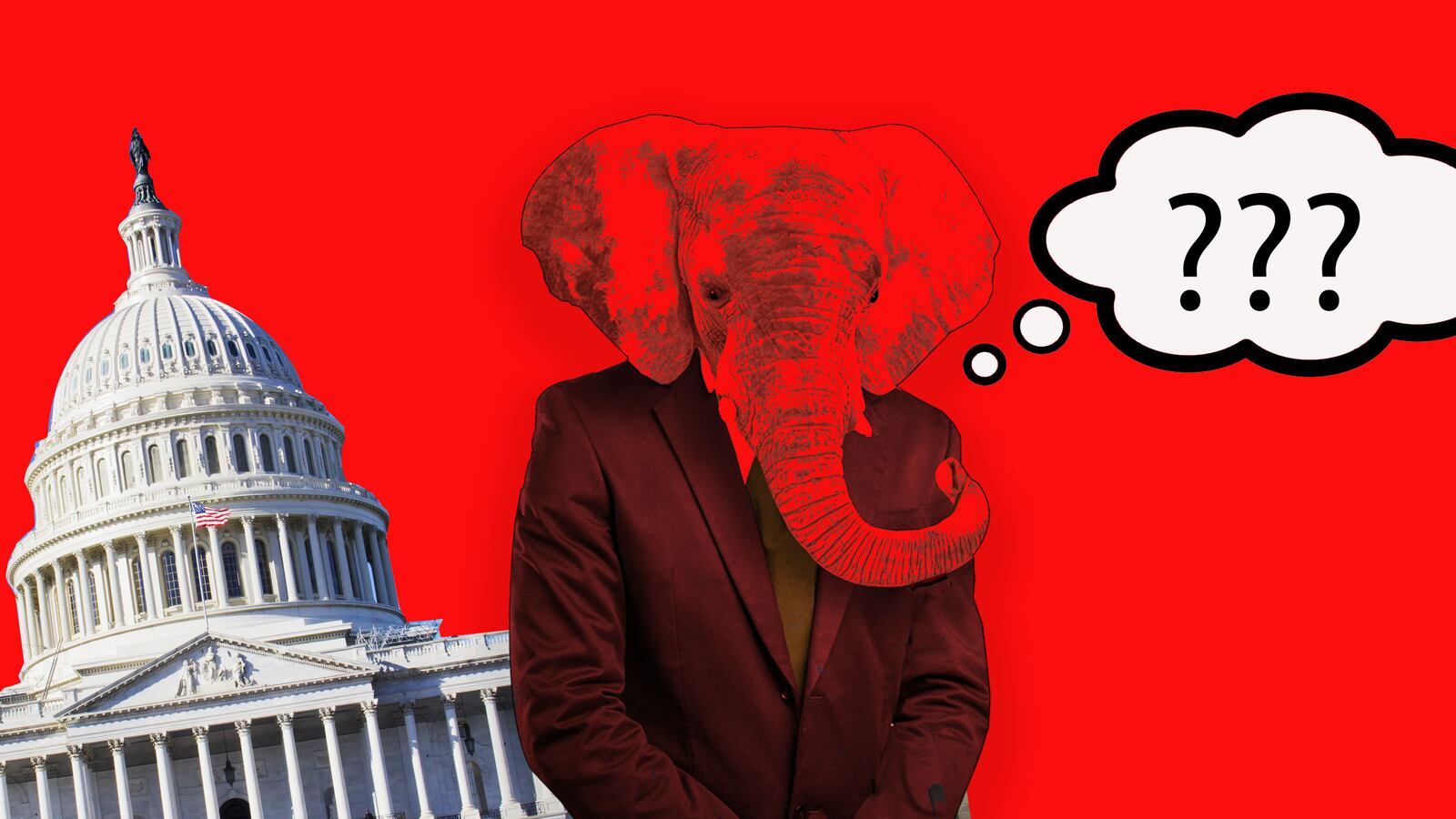When Democrats suffered major losses in 2009 and 2010 at the hands of the “tea party” movement, then-President Barack Obama called it a “shellacking” and pledged to listen to Republicans’ concerns about a plethora of concerns they had at the time. He dropped an agenda geared around stimulus spending for one centered on deficit reduction and, eventually, a modest entitlement reform proposal.
On Tuesday night, it was Republicans who were the victims of a shellacking—in a round of statewide races that saw massive Democratic gains. But aside from acknowledging that the state-level losses were setbacks, GOP lawmakers dismissed talk that it was a referendum on themselves or on President Donald Trump. If anything, they pledged to dive even deeper into their agenda.
“Look, people enjoy the political back-and-forth to some extent,” Sen. Mike Rounds (R-S.D.) told The Daily Beast. “It’s a show in some cases. But they also expect you to act like adults and to get things done. And sometimes that’s not happening up here.”
Sen. John Thune (R-S.D.), a senior member of Republican leadership, said Tuesday’s results were not a repudiation of the Republican platform but, rather, a wrist slap for the party’s inaction on it. Absent major legislative wins between now and next November, he added, Republicans risked losing support from their own voters and suffering even worse election drubbings.
“It speaks to the need for us to get accomplishments. I think if you’re going to run for office, you want to be able to point to things that you’ve been able to get done. And I think right now there’s a general frustration in the country that even though we’ve gotten some things done on our agenda, that some of the big-ticket items remain unfinished,” Thune told The Daily Beast. “We’re getting an incomplete.”
The victories of Democratic gubernatorial candidates Ralph Northam in Virginia and Phil Murphy in New Jersey were not unexpected. But the margins, especially in Virginia, were far greater than anticipated. Much of it appeared owed to swelling concern with the Trump presidency, renewed enthusiasm among Democrats—particularly college educated white suburbanites—and discontent with the GOP’s approach to health care.
Thune argued that the discontent was not over the GOP’s efforts to repeal and replace Obamacare—rather, it was because they had tried and failed to deliver on that seven-year-long campaign promise. That failure, combined with the slow pace of tax reform, might have caused some Republican voters to stay home, GOP lawmakers suggested.
“Let’s say for some supporters of the Republican party, they were expecting a result on health care and taxes—there may have been a few people that stayed at home. But I don’t think it was a sea change,” Sen Thom Tillis (R-N.C.) said, adding with a laugh: “We’ve got to be RINOs—Republicans in need of outcomes. Produce an outcome.”
Democratic operatives told The Daily Beast that they would be giddy if that was the lesson Republicans learn from Tuesday. In Virginia, exit polls showed nearly 40 percent of voters said their top priority was health care, and more than three-quarters of those voters chose Northam. Moreover, voters in Maine overwhelmingly backed a measure that would expand Medicaid in the state—a key tenet of the Affordable Care Act and one that congressional Republicans have sought to undo.
On tax reform, too, the Republican party appears to be drifting underwater. A recent Fox News poll had Trump’s approval rating on the issue at 37 percent and his disapproval at 51 percent. A recent CNN poll showed nearly identical numbers.
Nevertheless, in the aftermath of Tuesday’s drubbings, Republicans argued that the party needed to forge ahead on reform rather than retreat or reconsider.
“Congress needs to look at last night’s results and work through the weekend, Thanksgiving and their mama’s birthday to pass tax reform,” said former Rep. Jack Kingston (R-GA), a Trump surrogate.
The timing of Tuesday’s elections created its own set of complications for Republicans. There is a bit of space between now and the 2018 midterms, adding to the perception that the party has time to right its proverbial shift. At the same time, the most notable races between now and then will be mainly GOP primaries, making it harder for lawmakers to overtly call for course corrections.
Perhaps for that reason, few GOP lawmakers pinned the election night losses directly on Trump, save Rep. Scott Taylor (R-VA), widely regarded as a rising star in Republican politics, who told CNN that Trump’s “divisive rhetoric” was “looming large.” Most, instead, echoed House Speaker Paul Ryan (R-WI), who said during an interview Wednesday morning that Republicans would stand by the president regardless of concerns raised by members such as Taylor.
“We’re with Trump. We already made that choice. That’s a choice we made at the beginning of the year. That’s a choice we made during the campaign,” Ryan told Fox News host Brian Kilmeade. “We ran on a joint agenda with Donald Trump.”
Sen. Bob Corker (R-TN), who has made headlines in recent weeks for his public disputes with the president, said it was “self-evident” that congressional Republicans needed a course correction. But even he declined to elaborate on what type of change was needed because “it’s difficult to discern” whether voters were making a statement about the GOP’s “legislative agenda” or the “tone” of the debate in Washington.
While Corker didn’t get specific, Sen. David Perdue (R-GA) brushed off those concerns entirely.
“That was just a political election. I know we’re in the political business here in Washington, but I think most people back home probably don’t even realize there was an election in Virginia last night,” Perdue said. “But they’re very, very aware that we’re debating a tax change that will affect their lives.”
—with reporting by Sam Stein






